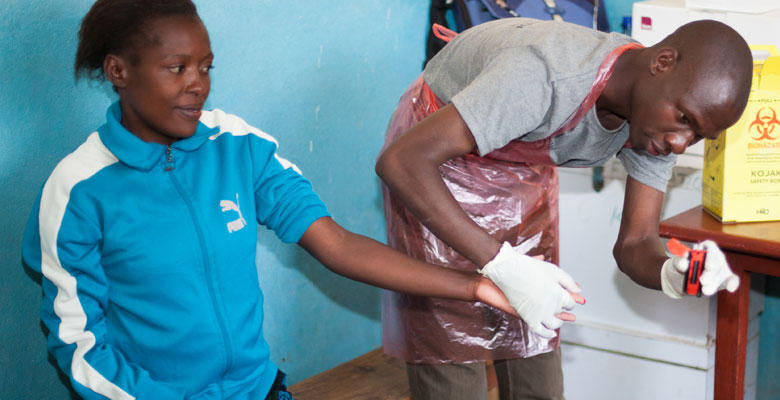The Human Immune Virus (HIV) is a serious disease that can be transmitted from one person to another. This ailment is extremely contagious and must be avoided at all costs.
Early HIV symptoms might be subtle and easily overlooked. An HIV-positive person might still spread the infection to others even if they don’t show any symptoms. One of the basic reasons why people should know their HIV status is because of this.
Women may be curious about how HIV symptoms differ from those seen in men. Many, but not all, HIV symptoms are the same in men and women.
Here’s are four common signs and symptoms.
If you detect these four “HIV” symptoms, in my opinion, you should not sleep with her (wife, partner, or friend) without protection. The 4 “HIV” symptoms are listed below.
1. Pelvic Inflammatory Diseases (PIDs)
If she has a constant of pelvic inflammatory illnesses, make an appointment for a medical checkup or test. This is due to the fact that such illnesses are HIV-related. As a result, confirm her HIV status before sleeping with her.
2. Glands that are swollen
If you observe swollen glands (Lymph nodes) in any of her body parts, take her to the hospital for a complete medical examination.
Rashes and blisters on the skin are three of the most common side effects.
Don’t dismiss her skin rashes and sores if you notice them. Take her to the hospital for a medical examination.
3. Rashes and sores on the skin
Most HIV patients develop skin problems. A rash is a typical sign of HIV, and many distinct kinds of skin rashes are linked to the disease. They could be an HIV symptom or the effect of another infection or disease.
It’s a good idea to have a healthcare expert look over one’s medical history if a rash occurs. They can identify which diagnostic tests are required based on a comprehensive medical history.
People with HIV may develop sores or lesions on the skin of their mouths, genitals, and anus.
Skin problems, on the other hand, may become less severe with the right medicine.
4. Different Infections
Don’t sleep with her if she has a history of diseases like tuberculosis, pneumonia, or sexually transmitted illnesses; instead, take her to the hospital for a test (HIV test).
It’s important to know the HIV status of your spouse, partner or friends.
Other symptoms of HIV as it advances include:
Diarrhea
Vomiting and nausea
Weight loss
Constant headache
Joint discomfort
Muscular pains
Breathing problems
Persistent cough.








